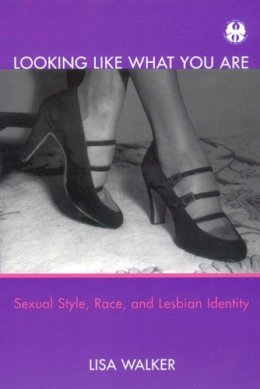
Looking Like What You are
Lisa Walker
Looks can be deceiving, and in a society where one's status and access to opportunity are largely attendant on physical appearance, the issue of how difference is constructed and interpreted, embraced or effaced, is of tremendous import.
Lisa Walker examines this issue with a focus on the questions of what it means to look like a lesbian, and what it means to be a lesbian but not to look like one. She analyzes the historical production of the lesbian body as marked, and studies how lesbians have used the frequent analogy between racial difference and sexual orientation to craft, emphasize, or deny physical difference. In particular, she explores the implications of a predominantly visible model of sexual identity for the feminine lesbian, who is both marked and unmarked, desired and disavowed.
Walker's textual analysis cuts across a variety of genres, including modernist fiction such as The Well of Loneliness and Wide Sargasso Sea, pulp fiction of the Harlem Renaissance, the 1950s and the 1960s, post-modern literature as Michelle Cliff's Abeng, and queer theory.
In the book's final chapter, "How to Recognize a Lesbian," Walker argues that strategies of visibility are at times deconstructed, at times reinscribed within contemporary lesbian-feminist theory.
Product Details
About Lisa Walker
Reviews for Looking Like What You are
Choice
"Both a remarkable feat of conscientious scholarship and a pleasure to read, Looking Like What You Are will prove of great interest to scholars of gender, race/ethnicity, class, and sexuality alike."
Renée C. Hoogland,University of Nijmegan "One of the great virtues of Lisa Walker's Looking Like What You Are is the ease with which she is able to personalize theoretical discourses. After being drawn in by her narrative style and her engaging use of anecdote, the reader will discover an elegantly written, thoroughly substantiated, and deeply convincing argument about the role of visibility in twentieth-century identity politics."
Bonnie Zimmerman,San Diego State University "Subtle, lucid, and stylish, Walker's book offers a provocative and challenging model for living and writing in ‘sustained contradiction.'"
Elizabeth Meese,University of Alabama
